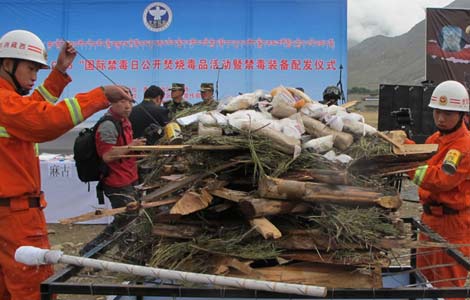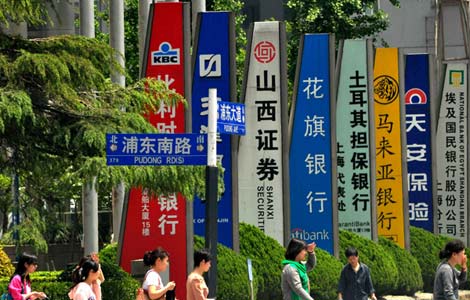Future points to carbon trading
Updated: 2013-06-14 02:17
By Lan Lan (China Daily)
|
||||||||
Carbon intensity
"Adopting a carbon intensity index is in line with China's commitment of reducing carbon intensity," said Yang Fuqiang, senior adviser on energy, environment and climate change for the Natural Resources Defense Council in Beijing.
China has set a target of reducing carbon intensity by 40 to 45 percent by 2020, compared with the 2005 levels.
Carbon intensity reduction leaves room for growth by allowing a limited increase of carbon emissions, said Yang.
"All approaches could be used, but the final target is to have a nationwide market, and some kind of top-level programs should be put in place," said Yang.
Most international carbon markets adopt absolute caps, but it still remains uncertain when China will reach an absolute peak in emissions.
Before the two-week climate change talks in Bonn in early June, the peak issue was already in the limelight. Some media reports said China's greenhouse gas emissions might peak before 2025 and the country might introduce a cap in 2016.
Reports about an early cap were dismissed by Su Wei, China's chief climate negotiator in Bonn, while he reaffirmed China's commitment to a carbon-intensity target by 2020.
The peak issue is part of the agenda for China in its sustainable development, but when it will happen requires more in-depth analysis, said Zhou Dadi, vice-chairman of the National Energy Advisory Committee.
Various studies have yielded wide variations for China's carbon emissions peak, ranging from 2025 to 2040.
"The year of 2025, or the period between 2025 and 2030, each has a high probability, but a precondition is China's energy demand for industrialization, which could peak by 2020, and the country could then enter a post-industrial era," said Yang.
Another key factor is the speed of China's urbanization. The quicker the process is, the earlier the country's emissions peak will come, Yang said.
Many Shenzhen businesses are willing to experiment with the new mechanism since it could also generate new business opportunities, though some power plants may be reluctant to adopt the new system, said experts who were involved in the design of the program.
The cost of environmental degradation has been largely ignored during China's impressive economic development in recent decades, putting mounting pressure on the government.

 Philippine, US start Naval exercise in S China Sea
Philippine, US start Naval exercise in S China Sea
 Supreme Court gay rights ruling celebrated across US
Supreme Court gay rights ruling celebrated across US
 Rudd returns as Australian PM after Gillard
Rudd returns as Australian PM after Gillard
 Brazil protests intensify before Confed Cup semifinal
Brazil protests intensify before Confed Cup semifinal
 Long lost weekend
Long lost weekend
 Park ready to charm China
Park ready to charm China
 Prices climb as police crack down
Prices climb as police crack down
 China 'most promising' in FDI
China 'most promising' in FDI
Most Viewed
Editor's Picks

|

|

|

|

|

|
Today's Top News
Proposed law puts curbs on family visas
Markets will stay volatile, continue to struggle: Expert
Promising outlook on US, China investment
US adoptees visit Chinese roots
Ecuador refutes Washington Post accusation
IBM to make Chinese job cuts
PBOC ends credit crunch, to go further
Snowden still at Moscow's airport, asylum pending
US Weekly

|

|







